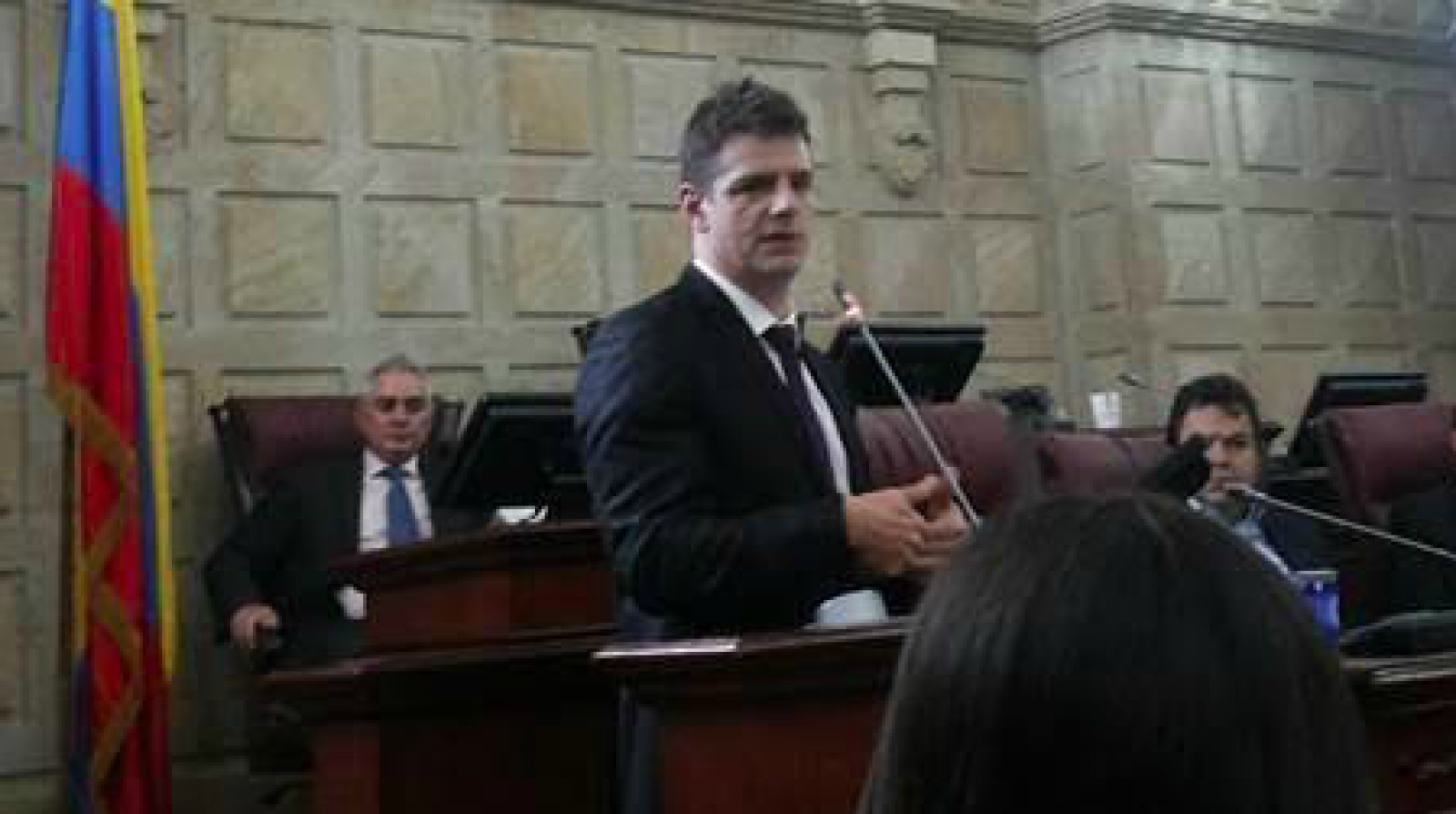
SHARE
Colombian citizens are demanding greater accountability and transparency from their leaders in all branches of government, and the Colombian Congress is leading the way. NDI and the Chamber of Representatives of Colombia signed a memorandum of understanding (MOU) on August 20 to support congressional efforts to pass legislation that improves transparency, encourages participation in international initiatives that promote transparency, and shares success stories and best practices from other countries on curbing corruption and increasing transparency and accountability.
The MOU was signed by Francisco Herrero, NDI’s resident director in Colombia, and Alfredo Deluque Zuleta, the president of the Colombian Chamber of Representatives. “It is necessary to increase accountability to strengthen democratic governance,” said Zuleta upon signing. “With this agreement, we hope to promote truly representative, transparent, open and responsible legislative and political action that contributes to the fight against all forms of corruption as an important way of defending institutional stability.”
The MOU builds on NDI’s existing partnership with the Colombian Congress to promote openness in government. NDI has been working with the upper chamber on transparency issues since 2014 and formalized its partnership in May 2015, when NDI Chairman Madeleine Albright signed an MOU on behalf of NDI with the Colombian Senate during a visit to Bogotá. NDI has since provided technical assistance to members of the First Commission of the Senate to draft the Law on Transparency and Accountability, which the Commission passed in June, now awaiting a vote on the Senate floor. NDI also provided assistance on other transparency-related legislation, including during a public hearing (audiencia pública) on transparency in the Senate.
The Colombian Congress is an active participant in the Open Government Partnership’s (OGP) Legislative Openness Working Group (LOWG), which NDI co-chairs along with the Congress of Chile, and has made significant advances in recent years to stem corruption and increase legislative openness, including the Anti-Corruption Act of 2011 and an access to information law in 2014. The LOWG is a body comprised of legislators and civil society representatives from more than 30 countries around the world dedicated to increasing transparency in their respective governments.
Immediately following the MOU signing, NDI conducted a workshop with elected members and legislative staff of both chambers of Congress and Cristiano Ferri, the Director of the Hacker Laboratory of the Brazilian Chamber of Deputies, to share the Brazilian Congress’ experience advancing transparency-related measures and creating innovative ways to engage the public in legislative affairs.
“This agreement will help us create more tools on legislative transparency and on engagement between citizens and members of Congress,” said Zuleta. “We want to promote representatives’ accountability to the people who elected them so that citizens truly know what is happening in the Chamber.”
These activities were conducted with support from the National Endowment for Democracy.


